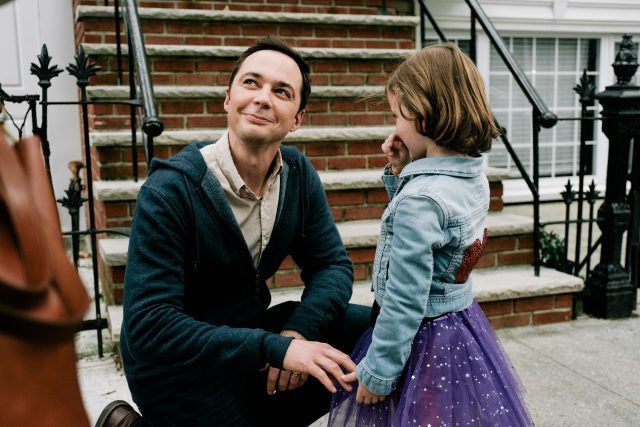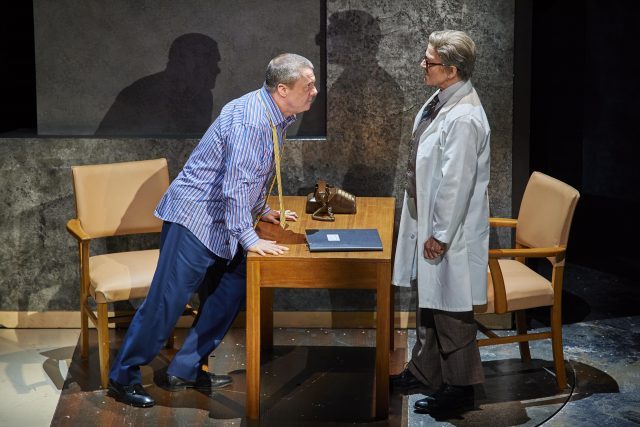
Roy M. Cohn (Nathan Lane) is not ready to accept his diagnosis from his longtime doctor (Susan Brown) in Millennium Approaches (photo by Brinkhoff & Mögenburg)
Neil Simon Theater
250 West 52nd St. between Broadway & Eighth Ave.
Wednesday – Sunday through July 15, $49-$169
angelsbroadway.com
I remember sitting in the Walter Kerr Theatre nearly twenty-five years ago, on back-to-back nights, watching Tony Kushner’s landmark two-part Angels in America: A Gay Fantasia on National Themes, a shattering, eye-opening experience that destroyed and reconstructed the limits of the very art form itself. The Ronald Reagan and George H. W. Bush administrations were over, but known deaths from AIDS in the United States were still rising — more than forty thousand in 1993 and more than thirty thousand in 1994 (to be followed by nearly fifty thousand in 1995 before a major corner in the treatment battle was turned). New York playwright Kushner brilliantly captured the wide-ranging horrors of the HIV/AIDS crisis from a sociopolitical, deeply personal angle in Millennium Approaches and Perestroika, nearly eight hours of intensely emotional theater, directed by George C. Wolfe. Angels is now back on Broadway, in a staggering, Olivier-winning Royal National Theatre production at the Neil Simon Theatre through July 15. Marianne Elliott, who won Tonys for her endlessly inventive direction of The Curious Incident of the Dog in the Night-Time and War Horse (the latter with codirector Tom Morris), has reimagined Angels for the modern age.
Millennium Approaches takes place in late 1985, with three interconnected stories moving between three changing, rotating sets cleverly designed by Ian MacNeil and beautifully lit by Paule Constable. Closeted attorney Roy M. Cohn (Nathan Lane), Sen. Joseph McCarthy’s chief counsel during the Army-McCarthy hearings, is a fast-paced, foul-mouthed wheeler dealer who, when told by his doctor (Susan Brown) that he has AIDS, insists, “No, Henry, no. AIDS is what homosexuals have. I have liver cancer.” Cohn is pulling strings to get law clerk Joe Pitt (Lee Pace) an important position in the Justice Department in Washington, but Joe doesn’t think the move will be good for his agoraphobic, Valium-addicted wife, Harper (Denise Gough). Meanwhile, when Prior Walter (Andrew Garfield) explains to his boyfriend, legal word processor Louis Ironson (James McArdle), that he has Kaposi’s sarcoma and is going to die, Louis can’t handle it and leaves him. The three plots intersect and weave together powerfully as Kushner and Elliott explore the characters’ unwillingness to face some difficult truths about themselves regarding sexual identity, honesty, and responsibility; the only one who accepts his fate is Prior, who begins hearing voices and then is visited by an angel (Amanda Lawrence, or Beth Malone on Wednesdays) who declares him to be a prophet.
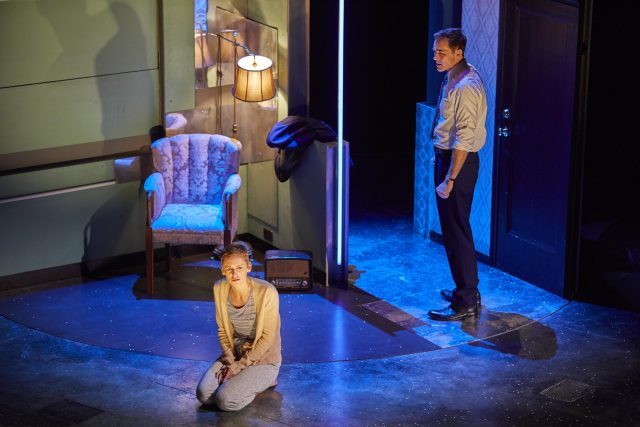
Harper (Denise Gough) and Joe Pitt (Lee Pace) face their demons in stunning revival of Tony Kushner epic (photo by Brinkhoff & Mögenburg)
At the beginning of Perestroika, the world’s oldest Bolshevik, Aleksii Antedilluvianovich Prelapsarianov (Brown), is standing at a podium in the Kremlin, announcing, “The Great Question before us is: Are we doomed? The Great Question before us is: Will the Past release us? The Great Question before us is: Can we Change? In Time? And we all desire that Change will come.” Those theories are addressed as Joe’s Mormon mother (Lawrence/Malone) comes to New York to save him from sin; Prior’s ex-boyfriend, a nurse named Belize (Nathan Steward-Jarrett), is assigned to take care of the hospitalized Cohn, who is being haunted by the ghost of Ethel Rosenberg (Lawrence/Malone); Joe and Louis grow closer; and Prior’s health continues to worsen even as he believes he might very well be a prophet, ordered by the Angel to “Submit to the will of Heaven!” Perestroika is staged very differently from Millennium Approaches; the revolving sets are gone, replaced by an often empty space in which individual elements are either wheeled in by mysterious Angel Shadows (Rowan Ian Seamus Magee, Matty Oaks, Jane Pfitsch, Ron Todorowski, Silvia Vrskova, and Lucy York), rise from beneath, or descend from above. “Perhaps it can be said that Millennium is a play about security and certainty being blown apart, while Perestroika is about danger and possibility following the explosion,” Kushner explained in a note on an earlier version of the script. (He has revised Perestroika over the years for previous revivals.) “The plays benefit from a pared-down style of presentation, with scenery kept to an evocative and informative minimum. . . . I recommend rapid scene shifts (no blackouts!), employing the cast as well as stagehands in shifting the scene. This must be an actor-driven event.”
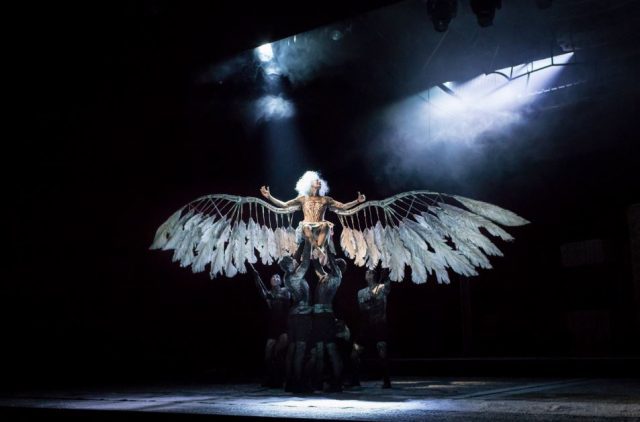
An angel (Amanda Lawrence) descends from Heaven to declare a new prophet in Angels in America (photo by Brinkhoff & Mögenburg)
Angels is indeed an actor-driven event, with sensational performances from the cast of eight, each playing multiple parts. Brown (Husbands & Sons, Playing with Fire), Lawrence/Malone (Here We Go, Tristan and Yseult / Fun Home, Ring of Fire), and Stewart-Jarrett (Wig Out, The History Boys) are particularly busy, taking on more than a dozen roles among them. Lane (The Iceman Cometh, It’s Only a Play) gobbles up Cohn, words flowing out in a fury. Gough (People, Places & Things, Desire under the Elms) brings an endearing tenderness to Harper, Pace (The Normal Heart, Small Tragedy) is strong and firm as Joe wrestles with his demons, and McArdle (Platonov, A Month in the Country) plays Louis with a sensitivity that belies his often-questionable actions. But Garfield (Death of a Salesman, The Amazing Spider-Man) soars above them all, fully embodying Prior, who is the show’s heart and soul. His physical and psychological ailing is palpable as he fights his disease while trying to find his place in a world that is getting away from him, his fears, though, somewhat offset by his unending hope. Elliott ably balances major dramatic scenes, such as when Prior gets into a fierce confrontation with the Angel, whose wings are operated by the Angel Shadows, with intimate moments like when Harper hallucinates, along with a large dose of comedy amid the heartbreak. Millennium might be three and a half hours and Perestroika four, each with two intermissions, but it doesn’t feel that long; they smoothly flow across time, and don’t be surprised if you make friends with those around you, especially if you’re seeing both shows the same day in the same seats. Kushner (Homebody/Kabul, Caroline, or Change) wrote, “I believe that, once engaged, audiences rediscover the rewards of patience and effort and the pleasures of an epic journey. An epic play should be a little fatiguing; a rich, heady, hard-earned fatigue is among a long journey’s pleasures and rewards.” Twenty-five years after their Broadway debut, on a planet where one million people die annually from AIDS and tens of thousands of Americans still contract HIV every year, this epic journey is more than worthy of rediscovery, in a stunning revival that hits just as hard today as it did a quarter century ago.

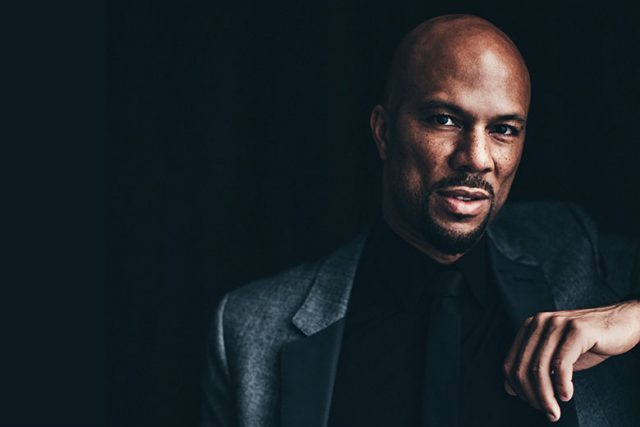



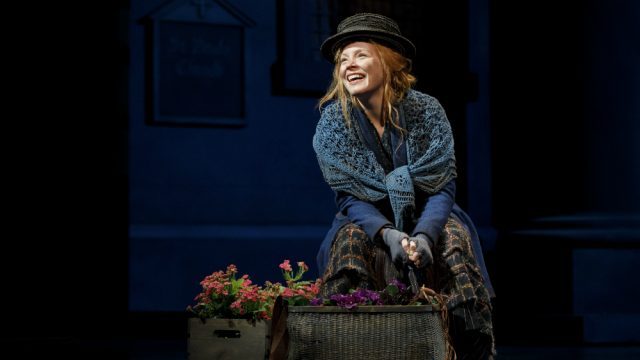
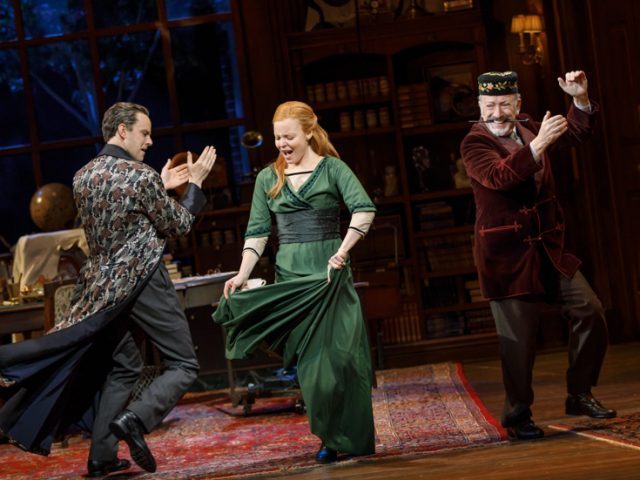
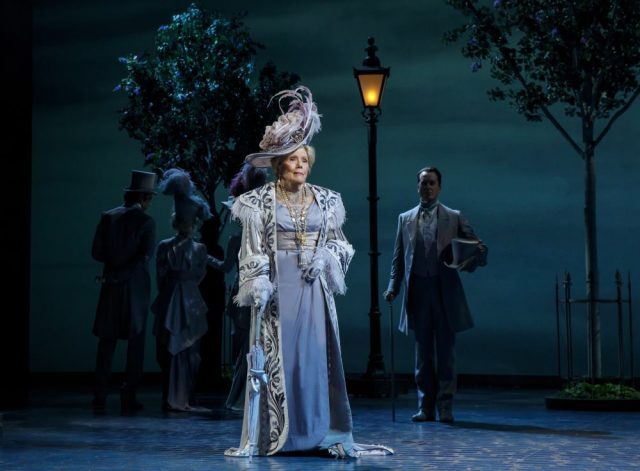

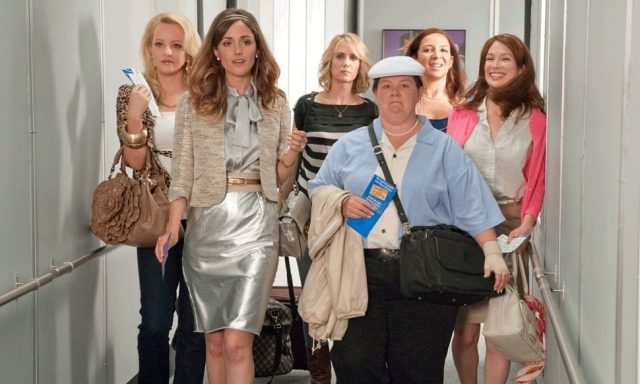
 First and foremost, don’t link Bridesmaids in with all those lousy Saturday Night Live one-note movies. And don’t assume it’s a silly chick flick either. As it turns out, Bridesmaids is one of the most consistently funny laugh-out-loud romps of this century. Directed by Freaks and Geeks creator Paul Feig, Bridesmaids is an endlessly clever and insightful examination of love, loneliness, and friendship starring SNL’s Kristen Wiig, who cowrote the smart script with Groundlings member Annie Mumolo (who makes a cameo as a nervous flyer). Wiig shows impressive depth and range as Annie, a perennial screw-up whose closest childhood friend, Lillian (Maya Rudolph), is marrying into a very snooty upper-crust family. After agreeing to be Lillian’s maid of honor, Annie gets involved in a battle of wits with Lillian’s future sister-in-law, the elegant Helen (a radiant Rose Byrne), who is determined to outshine Annie in every way possible and steal Lillian away from her. Already a mess — she had to close her bakery, she shares an apartment with a bizarre pair of British siblings, she works in a jewelry store where she drives away potential customers with her sorry tales of woe, and she allows herself to be treated miserably as a late-night booty call for a self-centered businessman (Jon Hamm) — Annie experiences a series of hysterical, pathetic setbacks as she attempts to organize the bridal shower and bachelorette party, including a riotous potty-humor scene in a high-end boutique that is likely to go down in comedy history for its sheer relentlessness.
First and foremost, don’t link Bridesmaids in with all those lousy Saturday Night Live one-note movies. And don’t assume it’s a silly chick flick either. As it turns out, Bridesmaids is one of the most consistently funny laugh-out-loud romps of this century. Directed by Freaks and Geeks creator Paul Feig, Bridesmaids is an endlessly clever and insightful examination of love, loneliness, and friendship starring SNL’s Kristen Wiig, who cowrote the smart script with Groundlings member Annie Mumolo (who makes a cameo as a nervous flyer). Wiig shows impressive depth and range as Annie, a perennial screw-up whose closest childhood friend, Lillian (Maya Rudolph), is marrying into a very snooty upper-crust family. After agreeing to be Lillian’s maid of honor, Annie gets involved in a battle of wits with Lillian’s future sister-in-law, the elegant Helen (a radiant Rose Byrne), who is determined to outshine Annie in every way possible and steal Lillian away from her. Already a mess — she had to close her bakery, she shares an apartment with a bizarre pair of British siblings, she works in a jewelry store where she drives away potential customers with her sorry tales of woe, and she allows herself to be treated miserably as a late-night booty call for a self-centered businessman (Jon Hamm) — Annie experiences a series of hysterical, pathetic setbacks as she attempts to organize the bridal shower and bachelorette party, including a riotous potty-humor scene in a high-end boutique that is likely to go down in comedy history for its sheer relentlessness.
